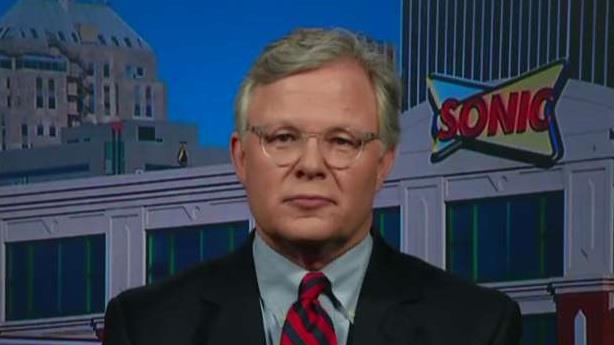Sonic CEO on the Minimum Wage Debate: It's a Challenge for Small Business
The rise in costs for Obamacare and mounting calls to raise the minimum wage across the country are adding to the financial pressures weighing on business in America. Sonic Corp. (NASDAQ:SONC) CEO Cliff Hudson weighs in how companies are dealing with those financial pressures.
According to Hudson one positive is that issues such as Obamacare and the minimum wage debate do not put any particular industry at a competitive disadvantage.
“Well, I think these are some challenges that our industry will be facing, but the fact is we all face it at the same time. In other words, it’s not a competitive disadvantage for one industry versus another, one concept versus another, so to the extent that it’s something that we all confront, you know, I’d rather have that kind of level playing field,” Hudson told the FOX Business Network’s Neil Cavuto.
Hudson then responded to concerns a potential doubling of the minimum wage would lead to a doubling of food or other products a company would sell.
“Well doubling, I don’t know, that’s quite a jump in a short period of time but the fact is, over a period of time, there’s no doubt over a period of time and it doesn’t mean immediate, but over a period of time there’s no doubt there will be some adjustments meaning price adjustments to deal with this.”
Hudson weighed in on why the minimum wage debate creates tension between employees and business, in particular small business.
“It is a challenge. I think it’s a challenge on the one hand for employees that are looking for ways to increase their hourly income and their overall income. It’s also a challenge for small business. I think this is a tension that is inevitable in small business, inevitable in our economy and why is it an inevitable tension, because we as employers are better off if employees have more money in their pocket.”
According to Hudson a more gradual increase in the minimum wage would help companies deal with the rise in costs.
“I think the key here to the extent that we are able to absorb this over time is that it’s done in stages over time, but all of us as employers I think had to get more clever about the way we treat our employees, the offering we have to customers, it doesn’t make things easier but it is something we are dealing with in many markets and are going to have to deal with even more.”
Hudson then made the case for local and state decisions rather than a national mandate on a minimum wage increase.
“The fact is allowing regional approaches to that [a national mandate] is important and it is more expensive to live in a major urban area in California than it is in rural Texas as an example.”




















